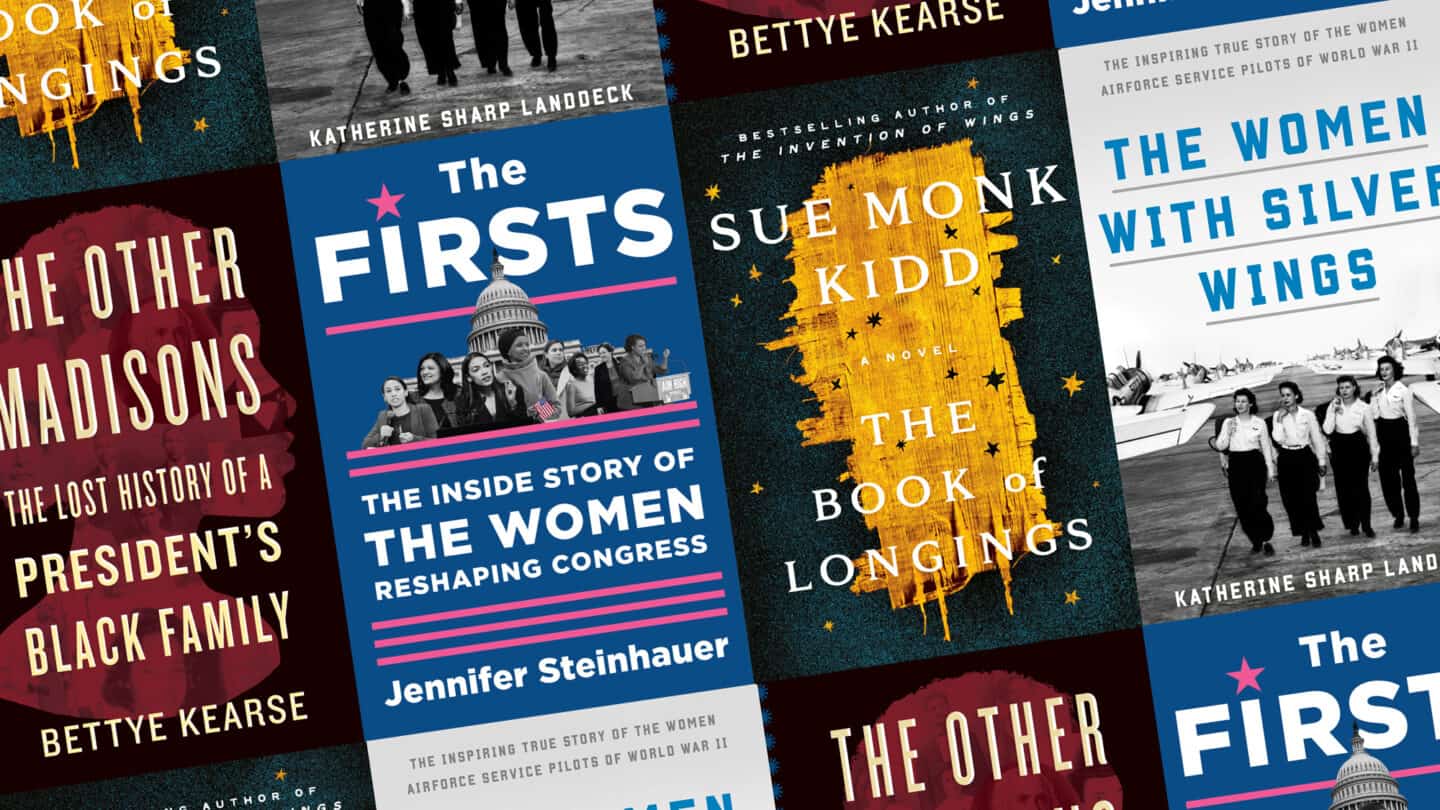
We’re standing at the dawn of a new decade—and where we’re standing today does not look like what we expected even a couple of weeks ago. While we here at Atlanta History Center primarily trade in the past, we’re also actively seeking to identify today’s history makers. Our programs seek to connect the past with the present so that citizens of Atlanta can create a better future together. This mission is perhaps more relevant today than ever.
One of the ways by which we seek to make connections is through our Author Talks series. Since its founding almost a century ago, Atlanta History Center has regularly hosted historians and authors to share their words and ideas with the public. We are honored to share not only the stories of women, but stories told by women; and our 2020 Spring Author Talks lineup allowed us to do just that. Unfortunately, a pandemic is currently sweeping the globe, and many of our spring talks have been cancelled or postponed due to public health safety measures. Atlanta History Center takes the safety of its staff, volunteers, guests, and visiting authors seriously. Though some events in this piece have been canceled or postponed, the important work of the authors herein should be added to the top of your work-from-home booklist.
A Mighty Woman With a Pen
Everyone looks at the past through a different lens—our individual life experiences color our perceptions—and that’s excellent. It means that we are capable of telling a richly detailed, complex story. However, if you were to look back at the past century, men penned the vast majority of history books published in the United States. Mostly these men were white, heterosexual, and from well-to-do backgrounds. Because of this, these authors were only able to tell one side of the story. Our shared past—emphasis on “shared”—comprises many different viewpoints, experiences, and voices. Publishers in the past, however, only gave a platform to one set of voices.
If we were to zoom out of Georgia and look at publishing as a whole, the 2019–2020 season of literary awards have been dominated by female writers. Of the ten bestselling books of the past decade, women penned eight. What’s exciting to us as an organization dedicated to sharing history is that women are being recognized and honored for their contributions to biography, autobiography, nonfiction, and criticism.
One such woman making history is veteran reporter Jennifer Steinhauer. Steinhauer has been reporting on the US Congress for The New York Times since 2010. She joined The Times in 1989 and has since served as City Hall Bureau Chief for New York City and Bureau Chief for the LA office. Her reporting on Hurricane Katrina in 2006 earned her the Newswomen’s Club of New York Front Page Deadline Reporting Award. Now reporting from Capitol Hill, Steinhauer has experienced first hand the sea change of the past five years. Prior to the pandemic, we were looking forward to hosting her at Atlanta History Center to kick off our spring 2020 season of Author Talks to discuss her new book, The Firsts: The Inside Story of the Women Reshaping Congress. Her perspectives are novel, and her analysis sharp.
In the realm of historical fiction, we were also thrilled to host Tracey Enerson Wood along with Georgia native Sue Monk Kidd. Wood’s work fictionalizes the true story of Emily Warren Roebling, the female engineer who managed the completion of the iconic Brooklyn Bridge in the 1880s. Wood paints an incredible portrait of a savvy woman ahead of her time, who does not shrink from a challenge. Sue Monk Kidd also takes on the audacious challenge of reimaging life in ancient Galilee. No stranger to difficult subjects, the Secret Life of Bees author masterfully adds a missing voice to the biblical narrative: that of a woman.
Other authors reminding us that history isn’t only something that happens to men are Bettye Kearse, Mab Segrest, and Katherine Sharp Landdeck. These three women tackle three familiar subjects in new, compelling ways. Bettye Kearse explores her own genealogy in order to understand her origins as a descendent of President James Madison and one of his enslaved laborers. She does not flinch in her pursuit of the truth. Similarly, Mab Segrest breaks open the deeply misunderstood history of mental illness across the country. Her research connects Milledgeville Asylum with the birth of 20th-century eugenics. Also showing up in unexpected places are the women of Katherine Sharp Landdeck’s new work of nonfiction. She follows the female fighter pilots of WWII who were themselves not allowed into combat, but who trained young men across the country.
Twentieth-century poet, feminist, and civil rights activist Audre Lorde once said, “Your silence will not protect you.” Atlanta History Center is honored to give these women a platform to share their stories throughout the year. If you’d like to get involved and to be a part of the next chapter, keep an eye out for the updates on our Author Talks series.
Due to COVID-19 concerns, Atlanta History Center is closed to the public through the end of March. All public events taking place on our campuses during that time have been postponed or canceled. As an organization committed to serving our community, Atlanta History Center is taking this action to help slow the rate of infection.
Though our doors will be closed, our commitment to sharing Atlanta’s history will continue across social media. We are dedicated to do our part to flatten the curve and appreciate your understanding. Stay tuned for future program updates as we continue to bring you the best and brightest in the literary world today.
